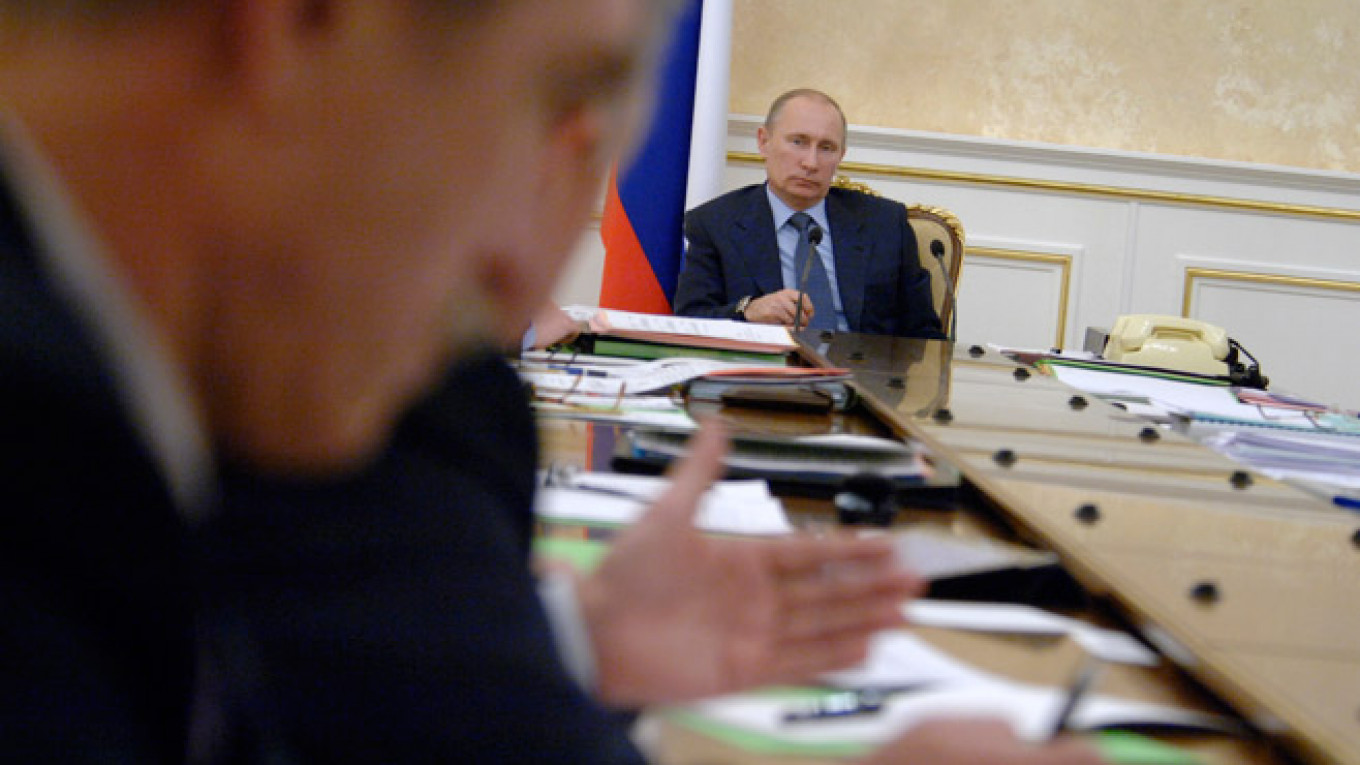The Rossiiskaya Gazeta newspaper ran a major interview with Kremlin chief of staff Sergei Ivanov a few days ago. When asked about the corruption plaguing the highest echelons of power, without even batting an eye Ivanov replied: "The worst corruption is not among officials."
The problem, Ivanov explained, is "lower — we have a huge amount of workaday corruption among businesses. Everyone should understand that whenever a doctor or teacher takes a bribe, that is also an act of corruption," Ivanov said.
Of course, everyone knows that already. And things are even worse with the business community. A perfect example is the six lawsuits the authorities have brought against opposition leader Alexei Navalny who just happens to be Russia's most prominent anti-corruption watchdog targeting senior government officials. Unfortunately for him, Navalny was previously a businessman.
And so, in order to discredit Navalny and his revelations of high-level corruption, investigators were instructed to pull up all of his past business contracts. Then the authorities slapped a blanket accusation on all of them, claiming that the deals were unprofitable for the other side, thus making Navalny a thief. Sadly, experts have tried in vain to convince the judge that when one businessman pays another for goods or services, that is called a business deal, not corruption.
Neither is it corruption, they explain, if one side makes out better than the other in a deal, and the players themselves determine what constitutes a "fair price" in a document called a "contract" that they both sign, and so on. However, the judge does not want to hear those arguments. This is because someone higher up has called him and said, "Look, we want you to find Navalny guilty on corruption charges." And this is because Navalny exposes corruption among senior government officials.
A picture of what constitutes real corruption emerges from Navalny's investigations: unfavorable state contracts in which half of the sum is siphoned off in kickbacks, officials with modest salaries living in personal palaces worth hundreds of millions of dollars, apartments in Miami hidden from the eyes of tax collectors and so on and so forth.
Corruption is actually the backbone of President Vladimir Putin's power vertical. Pull out the corruption, and the whole thing would immediately collapse. And this is because Putin's main principle is "loyalty in exchange for corruption."
That is, Putin does not just allow officials to steal — he encourages it, saying: "Do whatever you want so long as you are loyal to me." But, God forbid, the moment that an official displays the slightest disloyalty, rest assured that the anti-corruption mechanisms that Sergei Ivanov referred to with such pride will swiftly go into motion — but not one second sooner.
An extremely complex system of unofficial payments and bribes connects Russian officials of all levels with all types of business, from the smallest to the largest. That system also connects officials to one another because they all pay each other not only for promotions and appointments to desirable posts, but even for performing tasks that fall within their normal job descriptions.
For example, I know of one mayor who will only take meetings with people who pay for the privilege. And not only local businesspeople cough up the fee, but even municipal district chiefs pay it to resolve the day-to-day problems that arise in their jobs.
But in today's Russia, anti-corruption activists, doctors and teachers are far more likely to find themselves facing criminal charges than government officials.
Andrei Malgin is a journalist, literary critic and blogger.
A Message from The Moscow Times:
Dear readers,
We are facing unprecedented challenges. Russia's Prosecutor General's Office has designated The Moscow Times as an "undesirable" organization, criminalizing our work and putting our staff at risk of prosecution. This follows our earlier unjust labeling as a "foreign agent."
These actions are direct attempts to silence independent journalism in Russia. The authorities claim our work "discredits the decisions of the Russian leadership." We see things differently: we strive to provide accurate, unbiased reporting on Russia.
We, the journalists of The Moscow Times, refuse to be silenced. But to continue our work, we need your help.
Your support, no matter how small, makes a world of difference. If you can, please support us monthly starting from just $2. It's quick to set up, and every contribution makes a significant impact.
By supporting The Moscow Times, you're defending open, independent journalism in the face of repression. Thank you for standing with us.
Remind me later.






